February 22. 2020
We woke up early with the sunrise and decided to head to Agua Verde before breakfast. Not long after leaving, we started driving on a bad dirt road and it only went downhill (well, literally uphill and downhill) after that.
We eventually drove for over two hours to go maybe 18 miles. The view though was spectacular – likely the most beautiful dirt road either of us had ever been on. The narrow road soon meandered up and around mountains, suddenly presenting a view of the sea a mile away before disappearing behind the next mountain.
The hills had small trees on them, something new, probably because of more rain here though the mountains were as dry and dusty as anything we’d seen so far. The winter before, heavy rains had turned much of the dirt road into a rutted mess with slides and there were lots of places we drove over that were washed out only a foot or so from our tires, each leading to a several hundred foot drop-off. More than once, Susan saw the remains of vehicles that had fallen off into the deep ravines below. After almost two hours of pounding, rocky, single lane washboard road, it got worse. The last half mile was treacherous and steep on the way down to the beach, with loose rock and sand and even bigger washouts and gullies. We crawled along at less than walking speed at times, and I couldn’t take my eyes off the dangerous narrow road to look right or left, only dead ahead. The return trip up looked like it would be even harder.
Once we were able to exhale and finally got off of the “road” we drove through a tiny Mexican village with a few houses, a church, two restaurants and, apparently (though we never found it), a little tienda. The sand streets had soft spots that challenged the truck’s traction. Soon the village opened up to the palm trees and the green-hued water in the magnificent cove that gave Agua Verde its name. We finally found a place to stop on the beach (after turning around in someone’s unmarked “driveway”) maybe 30 feet from the sea
We marveled for what felt like hours at the spectacle before us, of pelicans swooping in formation and diving into the sea for their catch.
After a short walk down the beach, we decided to explore a little by truck. We’d been told of a beautiful place to camp under palm trees and we could see another interesting place with a rocky headland on a sand spit a half mile (as the pelican flies) from where we were. To get there, we had to go back up one of the worst parts of “that” road. Fortified, we packed up and looked for it. It was not a great moment in the annals of navigation. The low sandy road through the village converged into others that we followed only to be forced to turn around a few times and we felt like we were in an unsolvable puzzle.
Eventually, we found the main dirt road we’d previously come down. We crawled up the mountain then down onto more sandy roads, finally turning, as we were told, “right at the old baby carriage by the tree.” We’d also been told to “turn right at the old tire” to get there, so we weren’t 100% sure we’d made the correct turn, but figured we’d give it a try. Soon the sandy trail-like road we were on climbed to get over the mountain and drop us down to the beach. It also narrowed and became much rougher with even more washouts and rocks than the terrible road we came in on. It quickly became apparent that this was at best a Jeep road, not something to drive a three-ton truck down.
Finally, we reached a point where we looked at the narrowing steep road, then at each other, and said nope. We found a tiny 18-point turn around area that required me to drive slowly backward toward a two-hundred foot drop-off. Susan walked out to the edge of the cliff and nervously directed me with hand signals.
Back down the road and after many tree limb scrapes along the sides of the truck and no closer to the palms, we found ourselves on another sandy road that dead-ended at someone’s home. An old partially toothless man walked out towards us and we asked him if he spoke Spanish. No, he said in a thick Germanic-sounding accent (he explained he was from, of all places, Czechoslovakia), he spoke English. We asked him how to get to the places we couldn’t find, but his heavy accent and unclear directions made us call it quits. He seemed confident we could make it down the harrowing road we’d just turned around on but we knew better. We decided we’d had enough exploring and instead ground back up the terrible road and back down the horrible one.
Back to our breakfast spot we went to set up camp there (requiring nothing more than setting out our two chairs and small table). It didn’t exactly look like a campground, but there were several RVs not too far off and a posted sign invited us to camp for free. We noticed a nearby dilapidated outhouse, but were unfazed. With all the boondocking we’ve done, we’ve become accustomed to the absence of amenities. A small shovel has become our friend.
Shortly after we set up, a burly local man, Juan, came by and announced that he was un guardia de securidad. Initially we thought he would ask us for money or even tell us to move on. But based on his broad smile and Susan’s understanding of his Spanish we realized he was there to welcome us and assure us that we were in a safe place. After he left us, we watched him head over to the RVs, apparently to reassure them as well.
We decided to take a walk a long way down the beach at low tide, which let us enter a secret cove via a hole in the wall. We lingered awhile, then realized a high tide would strand us there so we headed back.
On the way back to our campsite, we stopped at one of the restaurants and got a couple of beers for US$2 each, which we thought was expensive until we remembered happy hours in metro DC where $5 was good for happy hour beer.
Then a double coincidence. We chatted up the people sitting at the lone table (we sat on nearby chairs) and learned they were from Slovenia, where we were planning on going in a couple of months (plans that were later foiled by coronavirus). They were on a sailboat out of La Paz, leaving “within the hour.” We soon learned their boat had a hailing port of Paradise, California (our hometown) and had been recently bought from a man who had lived there.
Down the beach, we talked to another couple from Alberta, Canada, who were spending months in Baja, which made me question whether we were moving too fast and not able to disconnect from our recently-abandoned work mode. We discussed it and decided probably not. We tend to enjoy the journey as much as the destination and get bored easily like to keep moving. Still, we were talking about perhaps being back in California again in less than a week. We intended to keep seeing as much as we could, but it suddenly seemed like we were on the return end now.
After our happy hour, we headed back to our campsite to make dinner. As evening approached, it appeared as if the whole town (maybe 40 people) came out to the beach. Suddenly we realized that our camping spot, which previously seemed fairly remote, was basically in the center of town!
As evening came, families with dogs (lots of dogs) strolled along the beach, teenage boys jogged (with their dogs), teenage girls giggled as they waved and everyone (and every dog) knew everyone else and seemed to genuinely love their beach time and their (simple) lives. Two unsupervised little boys gleefully ran back and forth at the sea’s edge, teased by the waves. We wondered about the lack of any opportunity for the young people and what their fate might be. Perhaps they would remain here, as happy as their parents.
Agua Verde felt like a town that time forgot. The residents appeared content with lives that lacked computers, cell phones, television, power tools (we watched a father and son laboriously repairing a panga with only a screwdriver), or much of any access to the outside world. The road was so poor and travel to the nearest town took so long that undoubtedly most of their food, clothes, any pretty much everything else must have been transported there by boat—and the only visible boats were the fishermens’ pangas and a few transient sailboats. Rarely have we felt such joy in the local people who worked and played by the sea.
The surf, now at high tide, was louder and I felt relaxed and at peace in this lovely place and knew I would sleep well.

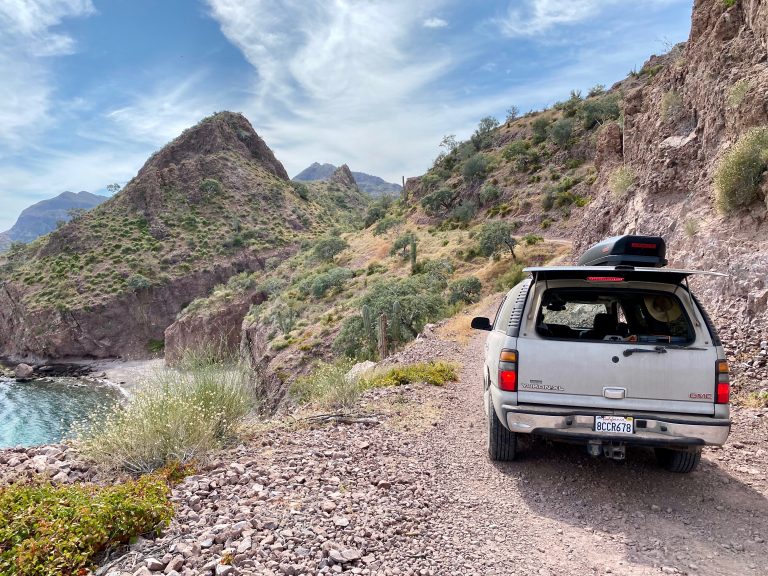
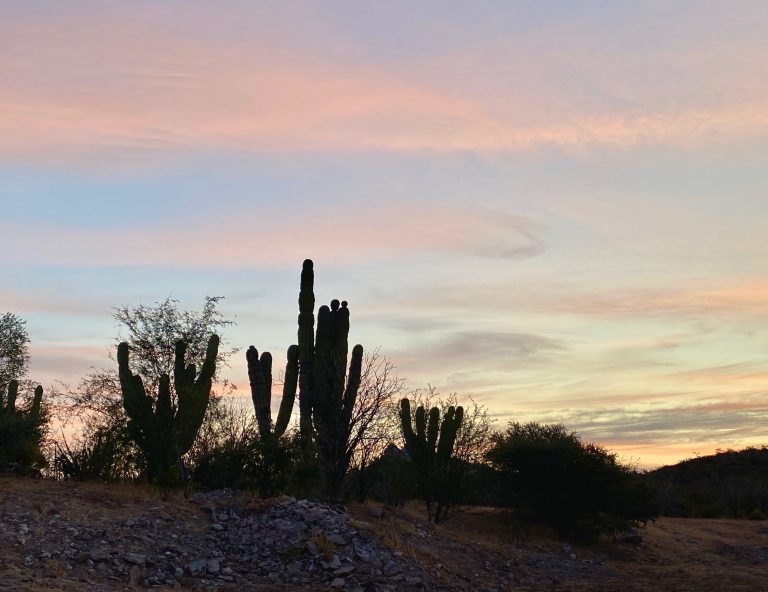
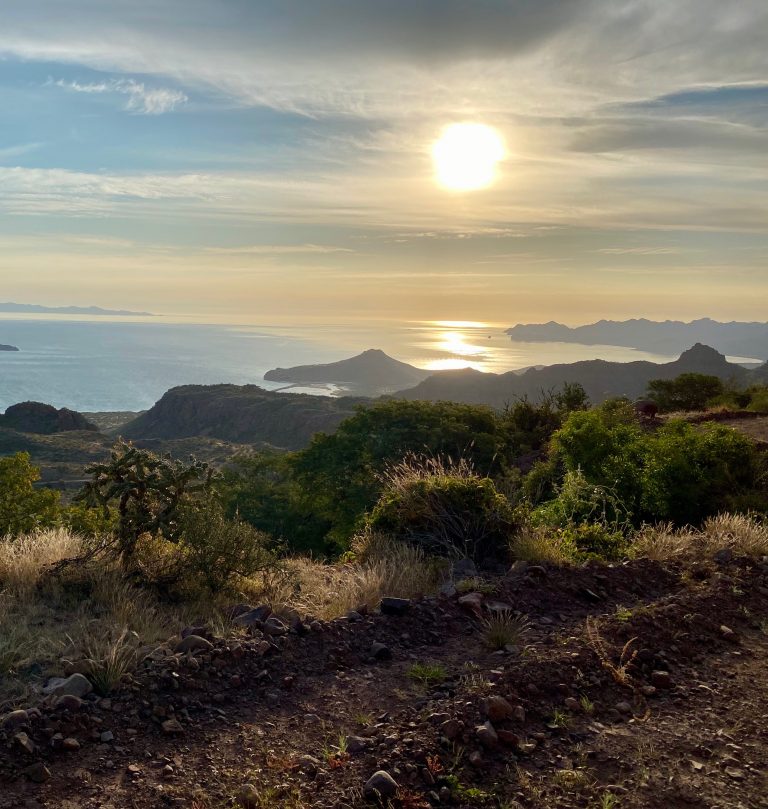
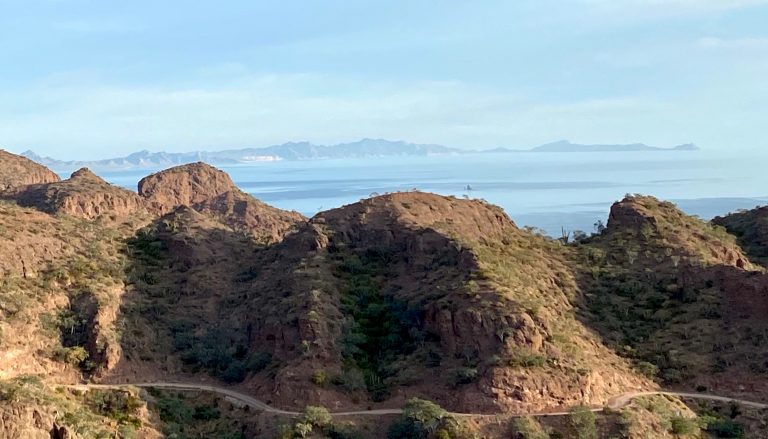
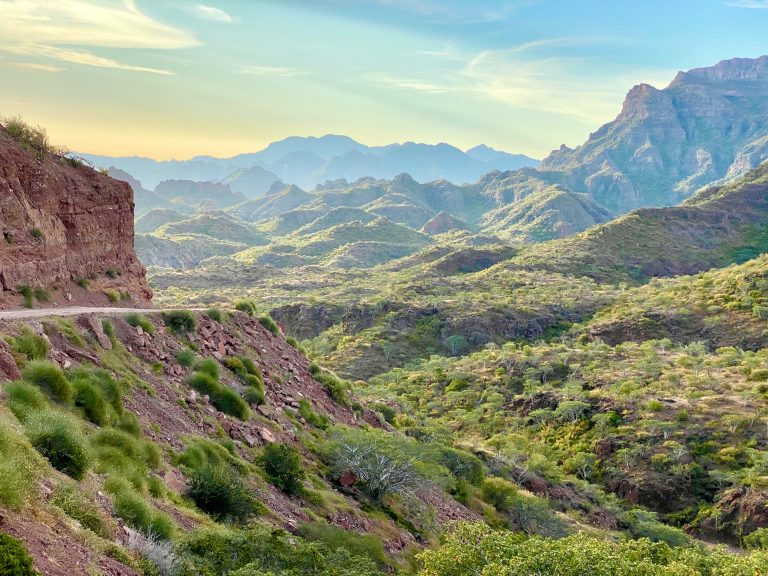
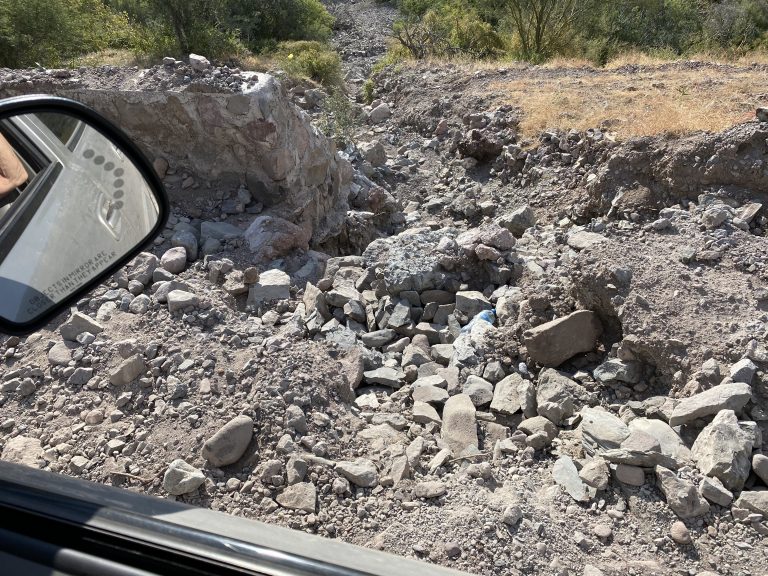
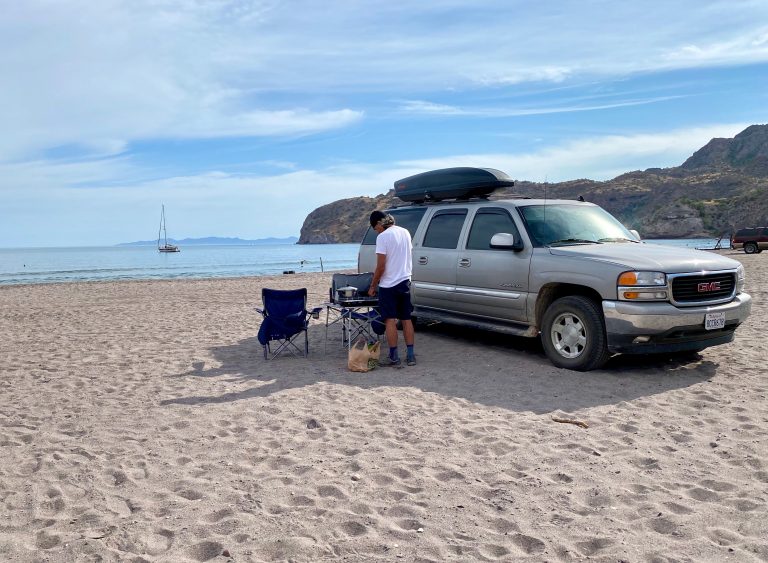
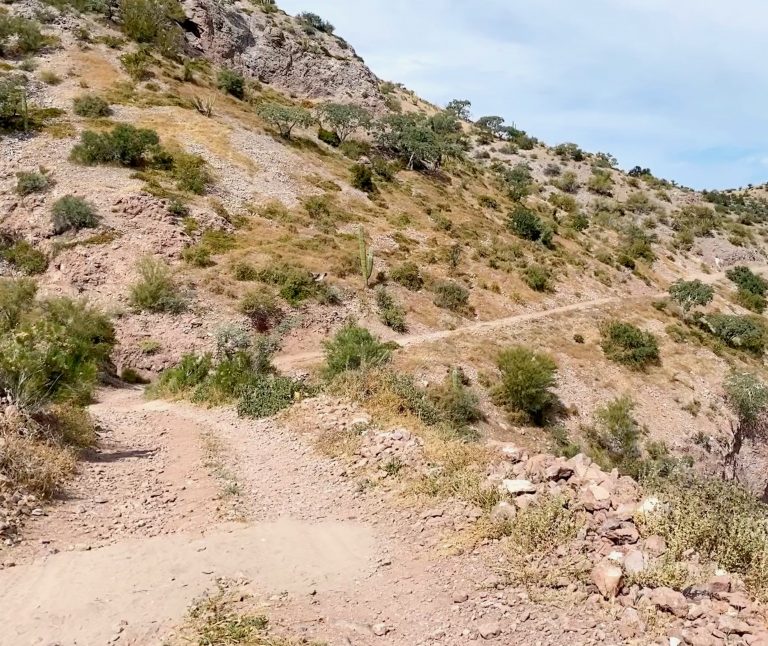
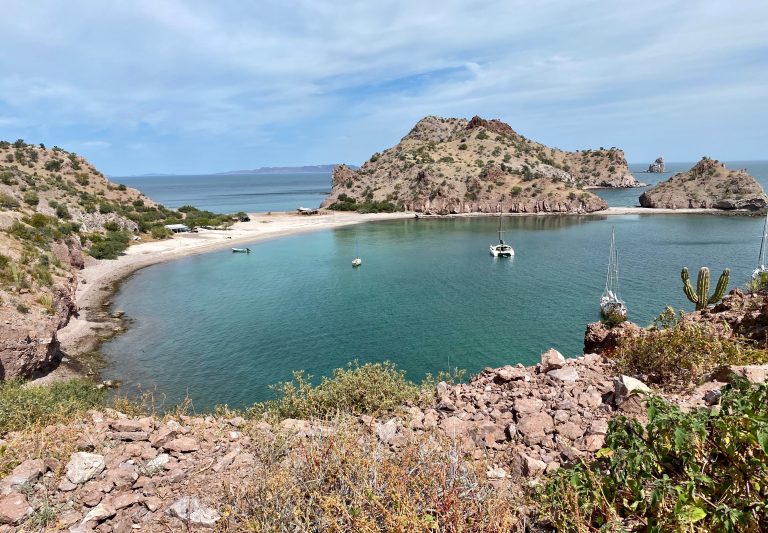
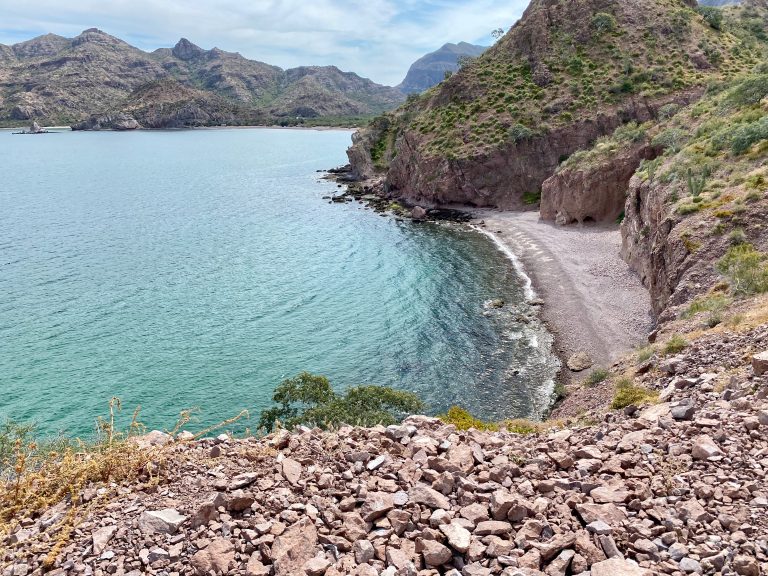
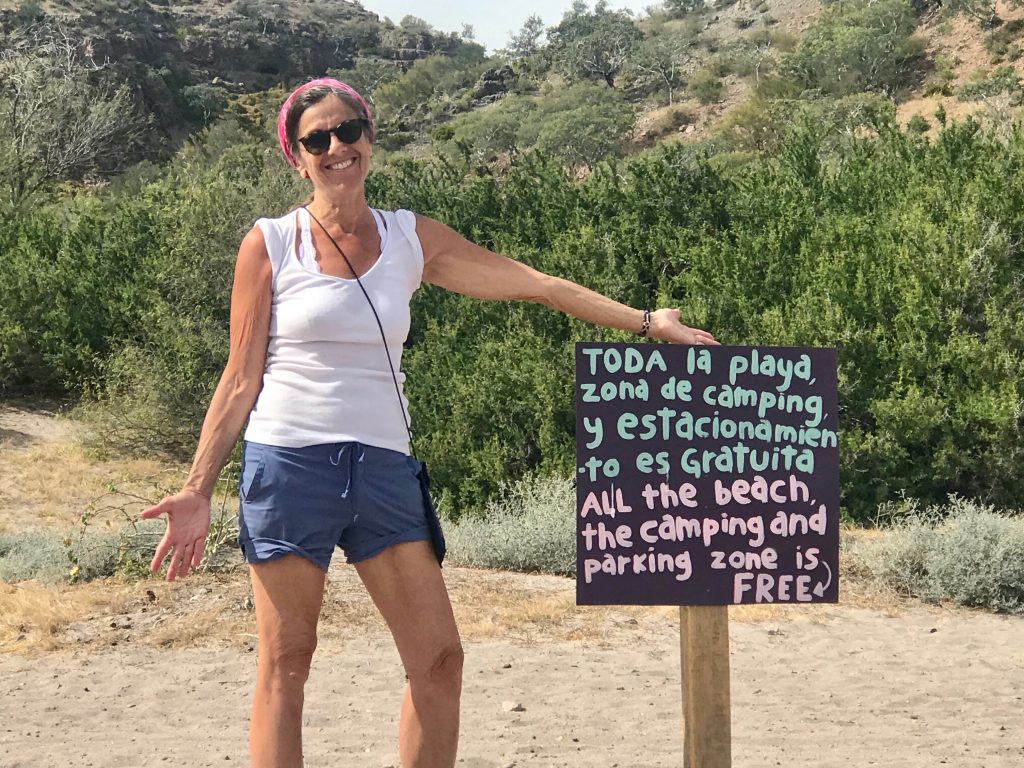
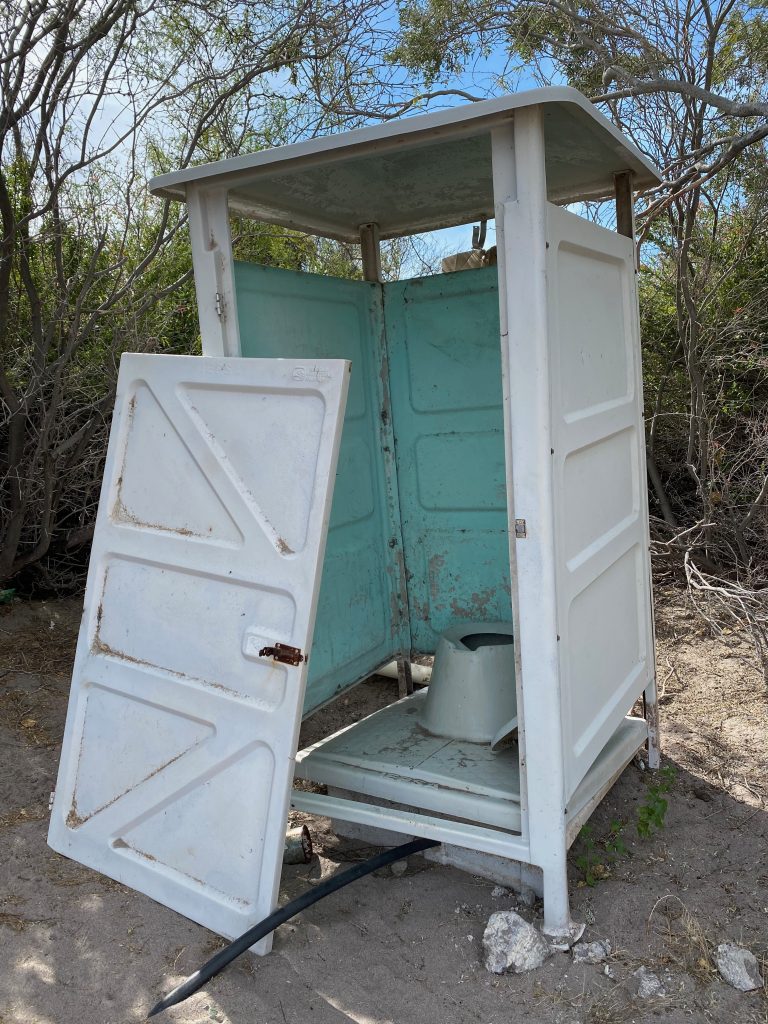
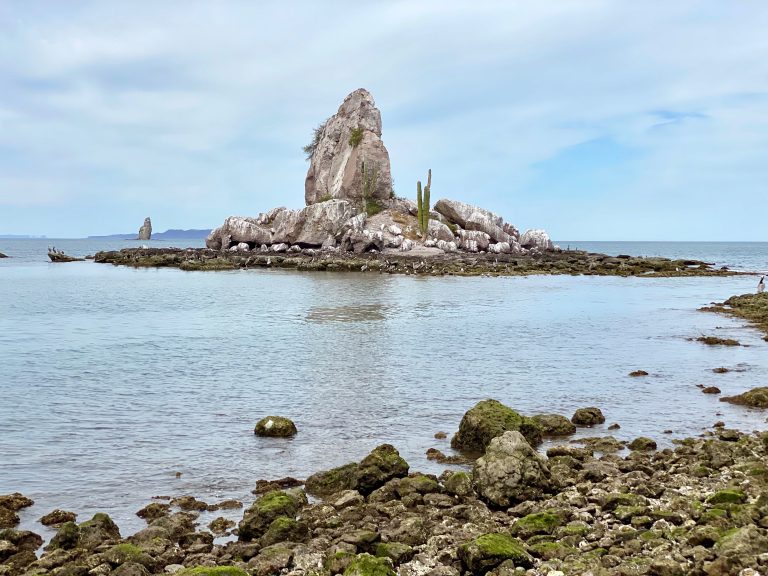
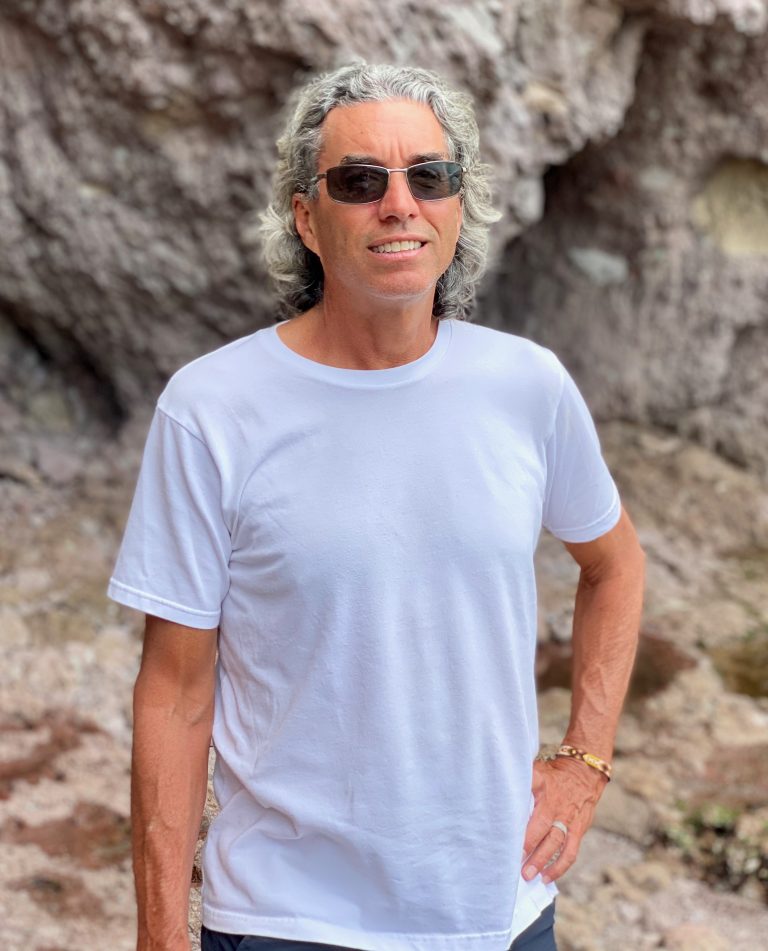
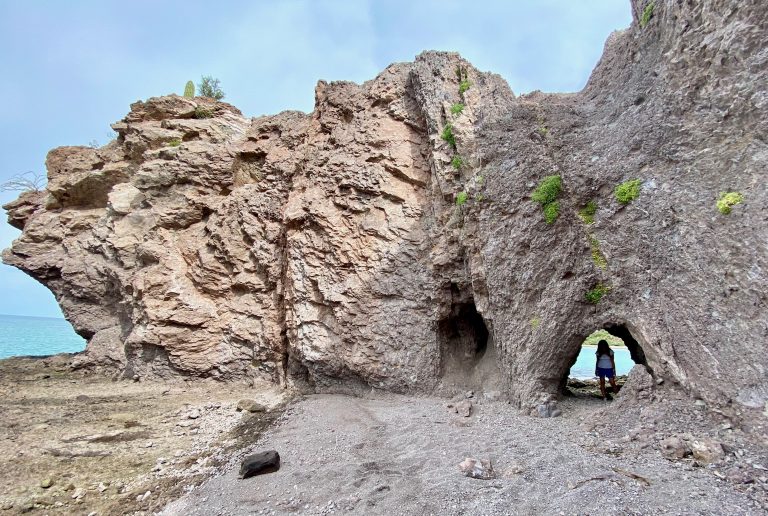
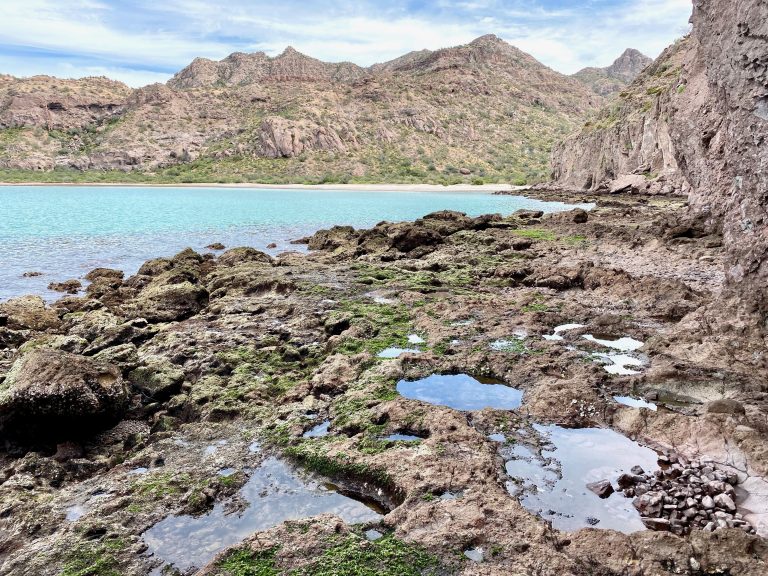
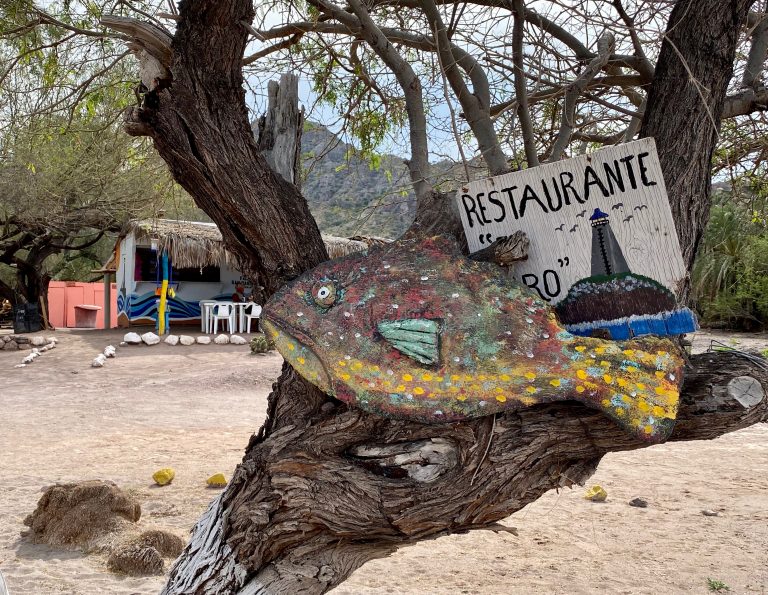
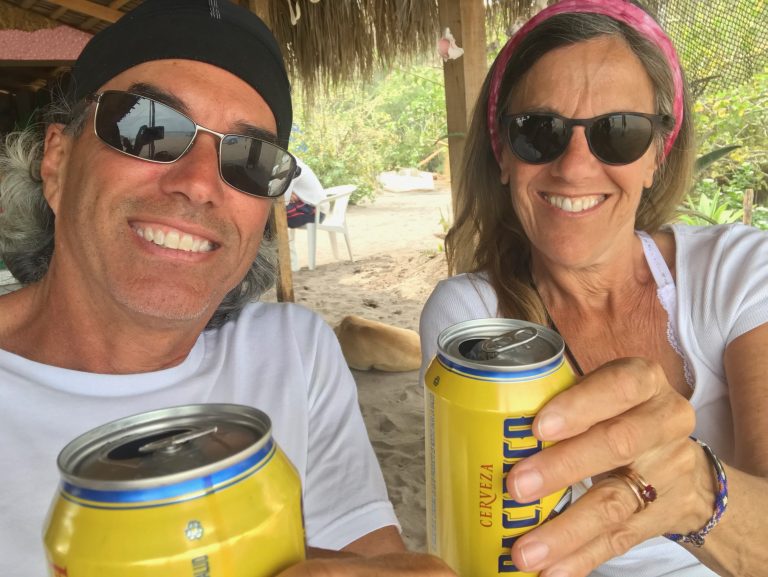
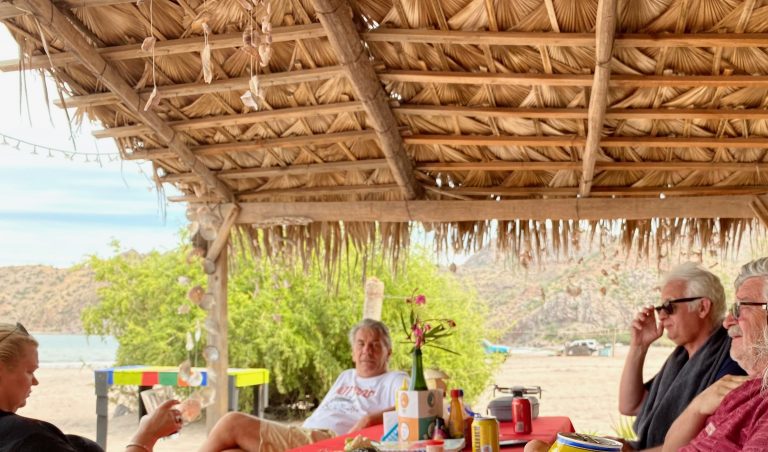
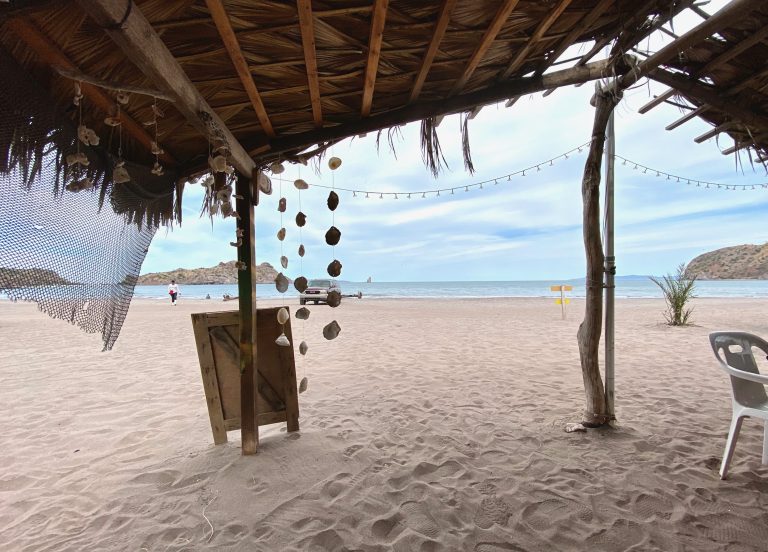
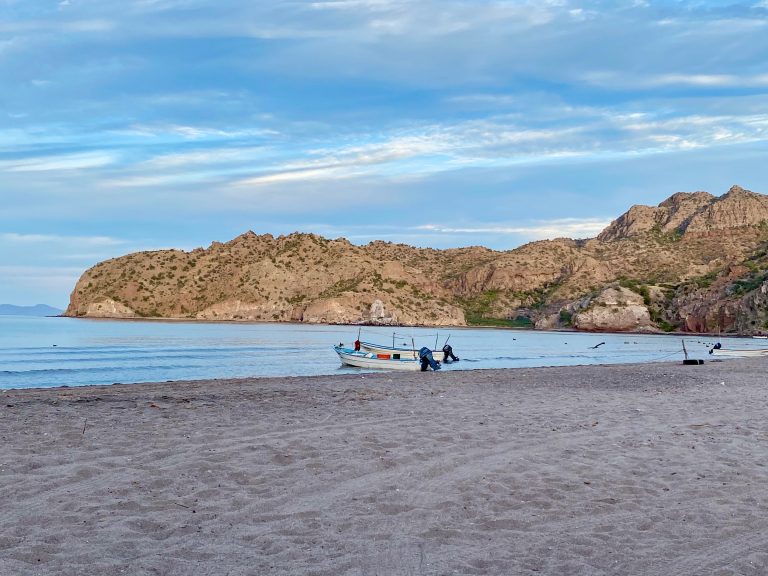
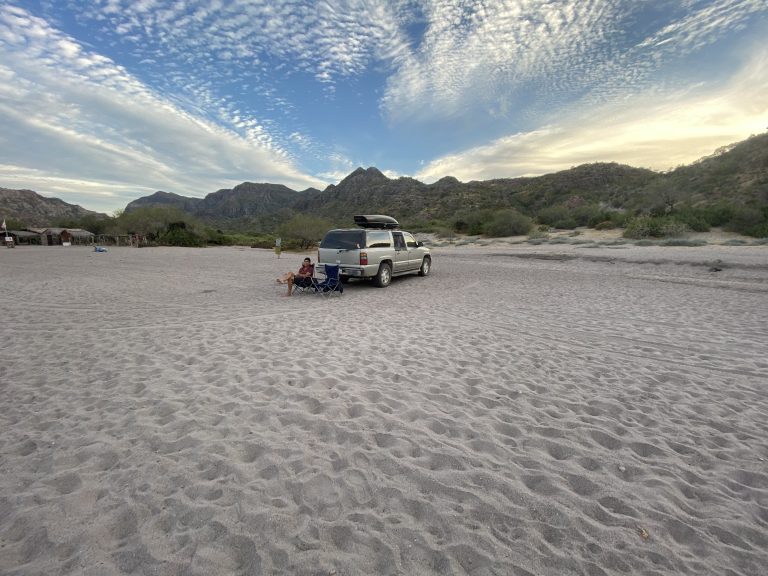
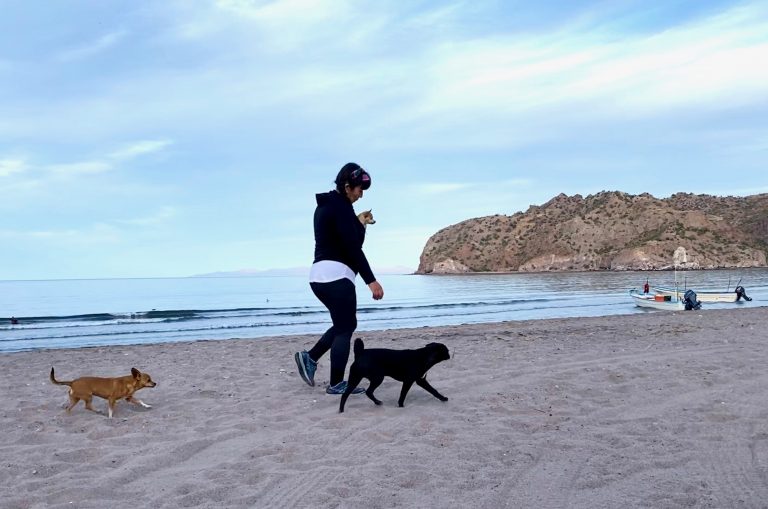
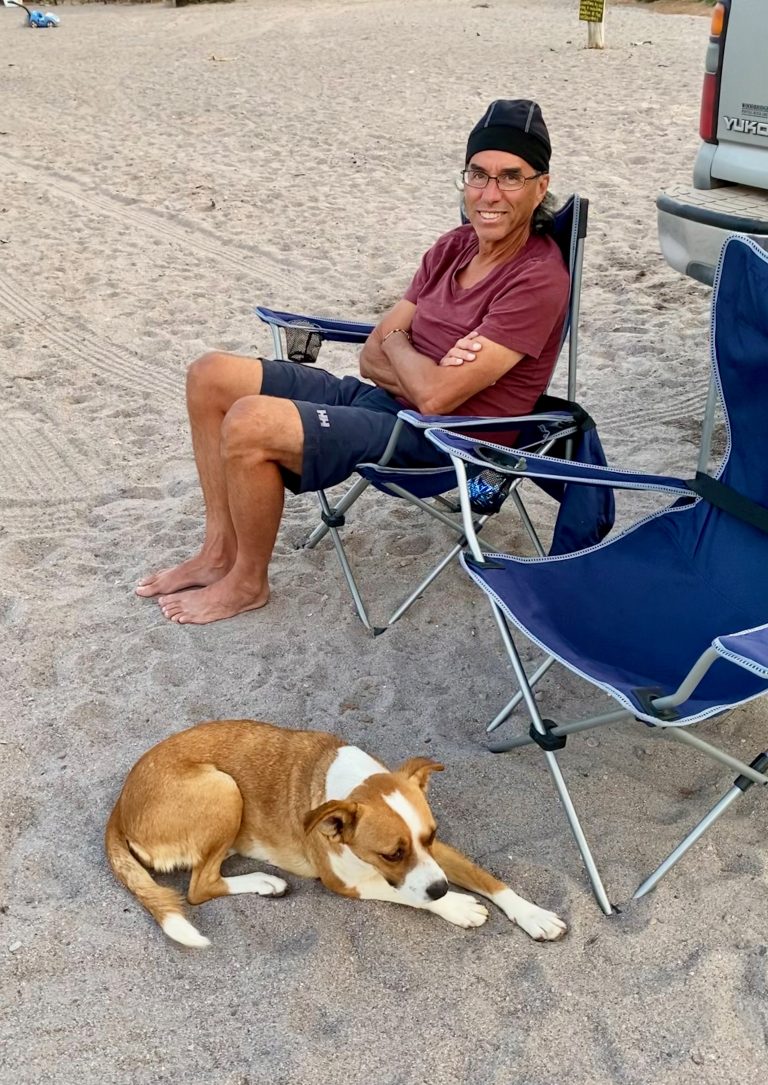
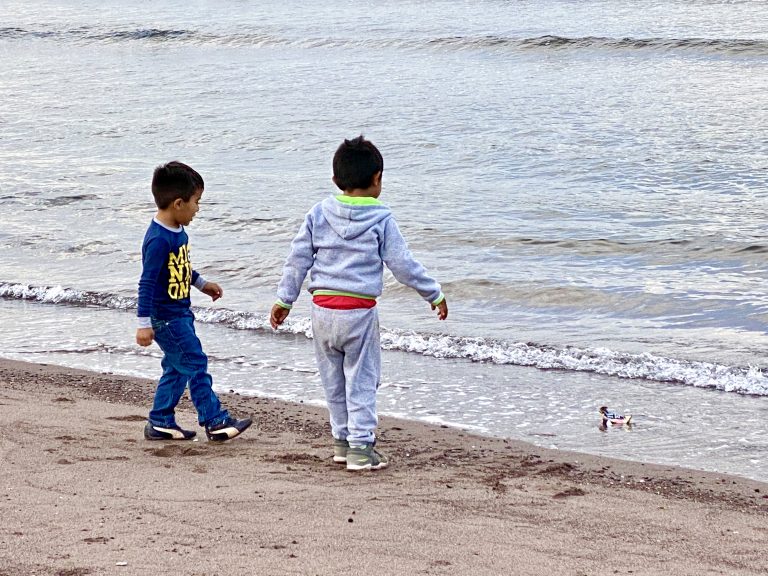
5 Responses